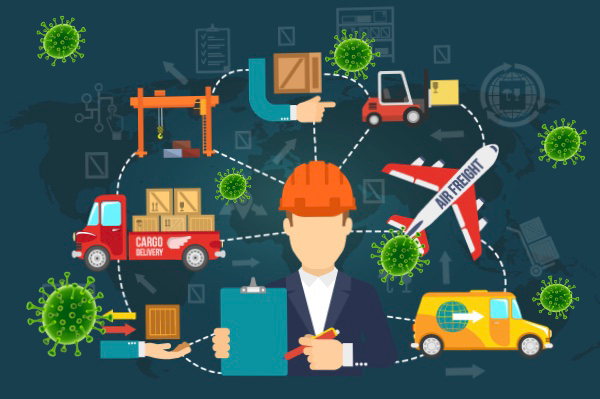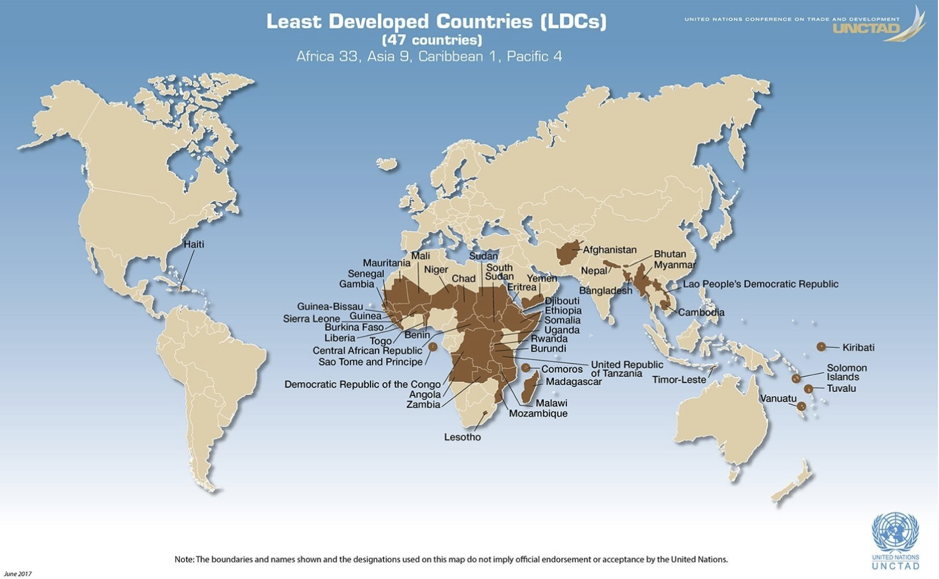COVID-19 AND THE LOGISTICS & TRANSPORTATION INDUSTRY
THE LOGISTICS & TRANSPORTATION SECTOR is absolutely crucial in this fight against COVID-19. The role it plays in the supply and delivery of resources makes it necessary that we mitigate the impact of the novel coronavirus in this sector so as to enable us mobilise effectively during this war. Transportation of products is simply the movement of said products from one point to another. The logistics of this is not that simple. Logistics management involves knowing the right products, and how much and how many is required, and what’s the correct time to get it at the right location, and getting it there in the right condition after all that. This would make transportation a subset of logistics. Logistics is transportation plus everything else in between, including storage, packaging or repackaging, etc. The key to optimising our logistics and transportation is to find a good balance between efficiency and cost. But these times of need, when we cannot complain about the water bill when our house is on fire, the deployment of efficient logistics protocols is ever necessary to get what is needed by those that need it the most to where it’s needed on time and in the right condition, no matter the cost. Whilst logistics and transport companies have over the years enhanced their systems by investing into technology and other structures in order to harness more business opportunities, the COVID-19 pandemic seem to have temporarily dashed that hope, at least for the time being. When COVID-19 first hit the industry, the initial widespread response was to safeguard employees by following the guidelines set by the World Health Organization (WHO) and the governments of the countries they operate in, such as providing hand sanitizers and working from home. These measures were implemented with the main goal of securing essential goods for the millions of people across the globe. Logistics companies have made continuous movement between states and cities possible through the networking of ports, suppliers, and manufacturers, in addition to intra-country and last mile deliveries. Keeping goods and services in motion has gone from being an unceremonious motto to a definite agenda. When Presidents and Prime Ministers comes on to deliver their speeches on how they’re going to send aid here and there, and how they’re going to order this and that for him and her, the task falls on logistics firms to facilitate such orders in a manner that befits the urgency of the situation. When Wuhan was the centre of the COVID discussion back in early February, UPS offered free air freight services to China for millions of face masks and huge quantities of other PPE’s. The toll on our frontline workers is also ongoing. The impact of the work of our brave frontline workers is watered down when we don’t have effective logistics and transportation systems in place to get them what they need on time. According to Satyanarayana Chava, Founder & CEO of Laurus Labs, a leading pharmaceutical company in India, “Logistics are taking longer and freight rates have gone up… this is also leading to shortage of manpower”. A shortage of manpower in Ghanaian places of business was very evident during our recently ended partial lockdown. As with many other sectors across the world, the logistics and transportation sector has taken a peculiar hit such that there has been a simultaneous lack of both supply and demand, in varying degrees. On one hand, the billions of people on lockdown at home or observing social distancing protocols at work ends up creating a lack of the needed levels of logistics services supply to match an increased reliance on delivery services for all the many incoming purchase orders. Then on the other hand, many factories across the globe that utilise logistics and transportation services have shut down, resulting in a lack of demand for logistics and transportation services. Current frustrations of many world leaders with the ordering of test kits and other PPE’s are partially a result of the current difficulties within the logistics and transportation sector. If money is not the problem, then when goods are ordered, then they must be delivered. Yet, as we read early on in this article, logistics is a lot more than just transport. COVID has hit this industry hard and the effects are rippling across the other sectors of industry. Air freight has been a vital part of time-sensitive supply chain and logistics management systems across long distances. With COVID-19 practically bringing the airline industry to its knees, especially for the delivery of vital medical equipment, pharmaceutical supplies and food, airlines have had to resort to using their grounded passenger jets as cargo planes. Luckily enough the lockdowns don’t seem to have had a huge impact on cargo handling as essential goods and services are still open. Availability is relatively stable but demand however seeing an edge. This does have some effect on pricing which is seeing some increases. Certain charges and other economic restrictions have been waived to make room for this. Also, the increase in demand for air freight does mean cargo planes are filled faster. Maritime cargo appears to be harder hit by the pandemic than air cargo. Restrictions in border movements have seen cargo ships locked in other countries in regions such as Europe and Asia. The prices for maritime cargo is also largely stable. Availability tends to be challenging especially with regards to equipment shipment. This definitely has an impact on the logistics and effective planning of some companies that work with heavy machinery. For the vessel chartering market, there appears to be little to no impact. Prices continue to remain stable whilst availability continues as usual. The impact of social distancing rather implies crew management has become a challenge and the possibility of infections and early isolation and quarantine of some crew members have been reported to pose some challenges. Distribution by road freight has very obviously also been affected by the coronavirus pandemic. With lockdowns being in effect across the world in varying degrees, it’s creating a
COVID-19 AND THE LOGISTICS & TRANSPORTATION INDUSTRY Read More »




